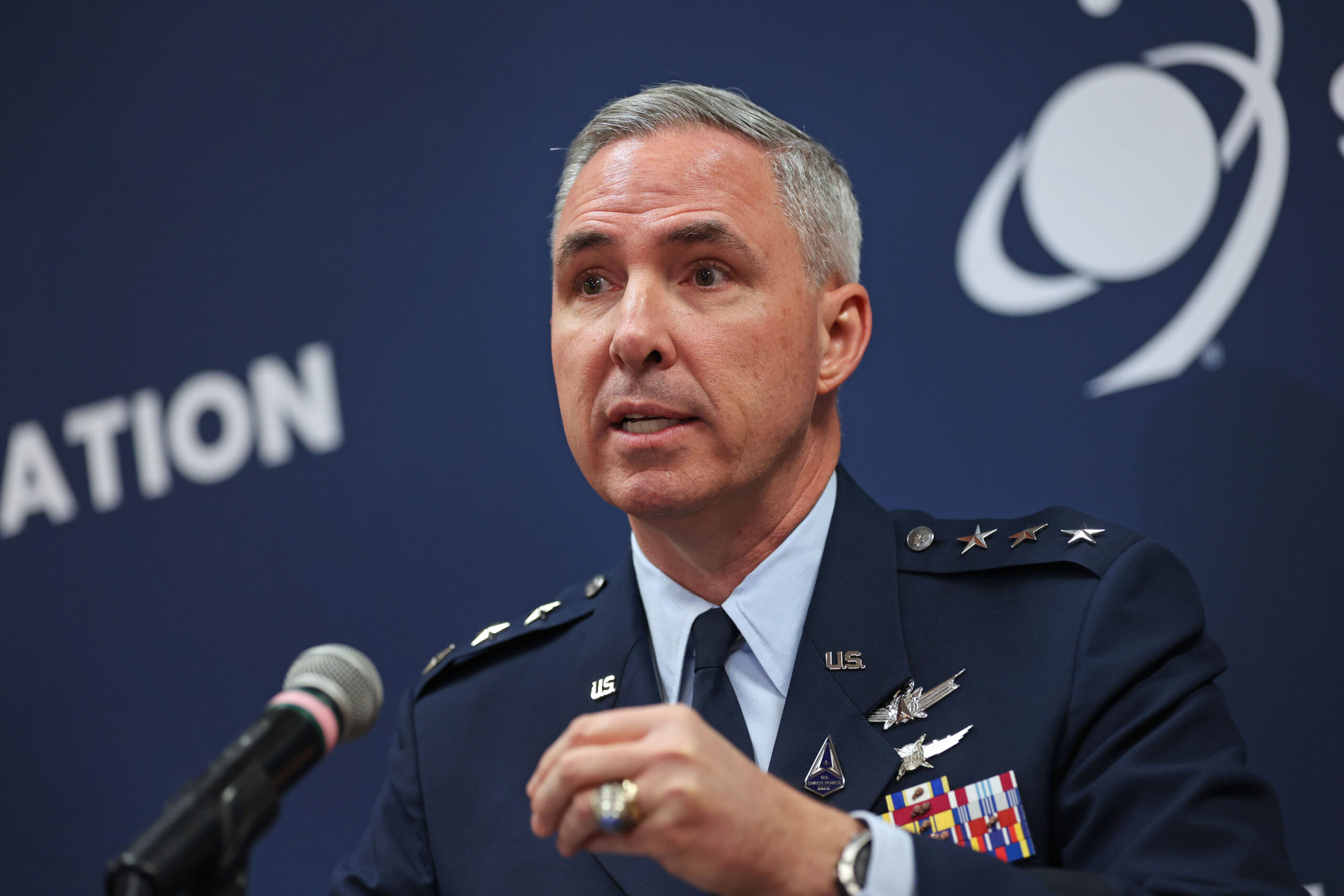Lt. Gen. Whiting: ‘Cyberspace is the soft underbelly of our global space networks’
COLORADO SPRINGS – The most likely form of attack facing satellite networks today does not happen in space but on the ground, where hackers seek to exploit vulnerabilities. “Cyberspace is the soft underbelly of our global space networks,” said Lt. Gen. Stephen Whiting, commander of the U.S. Space Force’s Space Operations Command.
In an interview with SpaceNews, Whiting said the command is now looking to shift cybersecurity specialists who protect desktop systems at Space Force bases to more demanding roles defending military satellite networks.
“We want to pivot more of those guardians into the defensive cyber mission,” said Whiting. The security of networks on bases is important “but we think there’s other ways we can get after that mission by going to commercial services, for example.”
That shift already has started at Buckley Space Force Base in Colorado where guardians operate sensitive systems like GPS and early warning satellites.
Many of the satellites the U.S. military relies upon for key services “were built or designed in an era where we weren’t concerned about cyber threats,” said Whiting. “Our global space networks do reach around the globe, they reach out to geosynchronous orbit 22,000 miles above the Earth’s surface, and that creates a lot of novel attack surface where somebody could seek to attack us in cyber.”
Even though China and Russia have demonstrated they could physically try to attack U.S. satellites in space, “we think they would prefer and probably start by attacks in cyber and certainly countries like North Korea and Iran, which are not as sophisticated in space, would definitely try to attack us in cyber.”
“And so we have to defend all that attack surface,” said Whiting. “I would say today we put a lot of time, effort and energy on improving both our cybersecurity stance and then our cyber defenses. We’re making real progress there but there’s still more work to do.”
Space Delta 6, a unit within Space Operations Command, operates the military’s satellite control network and also is responsible for defensive cyber operations, including the protection of the GPS constellation. The unit also has “mission defense teams” who constantly monitor network traffic.
A separate unit, Space Delta 3, focuses on space electromagnetic warfare, which is the protection of satellites from radio-frequency jamming. Satellites providing services over warzones frequently face jamming attacks.
